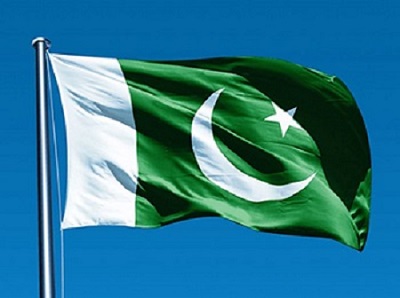Human Rights Organizations have condemned the crackdown on the Pashtun Tahaffuz Movement (PTM), PTM and called for the release of its leaders.
The rights organizations allege that the Pakistani government has shown little willingness to address the grievances of the Pashtun community or engage in meaningful dialogue with the PTM.
According to the rights organizations, the repression of PTM underscores the challenges faced by Pashtuns in Pakistan in their struggle for rights and recognition despite facing discrimination and marginalization, while Pashtuns continue to resist oppression and demand justice for themselves and their communities.
“The international community must stand in solidarity with Pashtuns and support their efforts to achieve equality and dignity in Pakistan,” the rights groups call.
In addition to repression by the Pakistani state, Pashtuns in Pakistan also face threats from militant groups operating in the region.
The rise of the Tehreek-e-Taliban Pakistan (TTP) and other extremist organizations has further exacerbated the security situation in Pashtun-majority areas, leading to widespread violence and displacement.
A prominent rights activist was allegedly abducted last year by Pakistan’s intelligence agencies a day after he was arrested for addressing a protest to demand free cross-border movement with neighbouring Afghanistan.
Manzoor Pashteen, founder of the Pashtun Tahaffuz Movement (Pashtun Protection Movement or PTM) rights group, was on his way to Turbat town from the border town of Chaman in Balochistan province when he was arrested by police.
Former Pakistani parliamentarian, Mohsin Dawar condemned Pashteen’s arrest and suspected abduction, calling them a ‘continuation’ of state policies.
“The fact of the matter is our de juris state has collapsed. Court orders are violated. Parliament does not exist. The executive has been made dysfunctional. The entire system is paralysed,” he said.
Afrasiab Khattak, another former member of parliament, agreed with Dawar and called Pashteen’s arrest an attack on civil liberties.
Khattak said the human rights situation in Pakistan has worsened.
“The existing interim setup is a very thin veneer for the rule of the generals. Media is under severe constraints and political activities are only selectively allowed. Political activists who criticise the government’s policies are being arrested,” Khattak said.
Dawar said social media and non-traditional means of information will help fight this “atmosphere of suppression.”
Pashtun communities have borne the brunt of this violence, with thousands killed and millions displaced from their homes.
Military operations
It is alleged that the Pakistani military has launched several military operations in Pashtun regions in an attempt to root out militant groups. However, these operations have often resulted in civilian casualties and human rights abuses, further alienating Pashtun communities from the state.
Pashtuns have accused the military of using heavy-handed tactics and indiscriminate force, leading to widespread resentment and distrust.
The Pashtun Tahaffuz Movement (PTM), a nonviolent indigenous organization, emerged as a vocal advocate for Pashtun rights, challenging the military’s impunity and demanding accountability for past abuses.
Founded in 2014 by a group of university students from South Waziristan, including Manzoor Pashteen, the PTM seeks to highlight the struggles of Pashtuns affected by Pakistan’s military operations against the Taliban and its local affiliate, the Tehreek-e-Taliban Pakistan (TTP).
The PTM gained national prominence in 2018 following the extrajudicial killing of Naqeebullah Mehsud, a young Pashtun man falsely accused of terrorism by Pakistani police.
The movement’s leaders, including Mohsin Dawar and Ali Wazir, led widespread protests demanding justice for Naqeebullah and an end to state-sponsored violence against Pashtuns.
PTM leaders and activists have faced harassment, censorship, and arbitrary arrests, with several prominent members, including Manzoor Pashteen, Mohsin Dawar, and Ali Wazir, being targeted for their activism.
PTM is also critical of the Pakistan Army and accuses the state of violating the rights of Pashtuns but the Pakistani Army has claimed that PTM is backed and supported by foreign powers in their activities against the state.


Comments are closed.